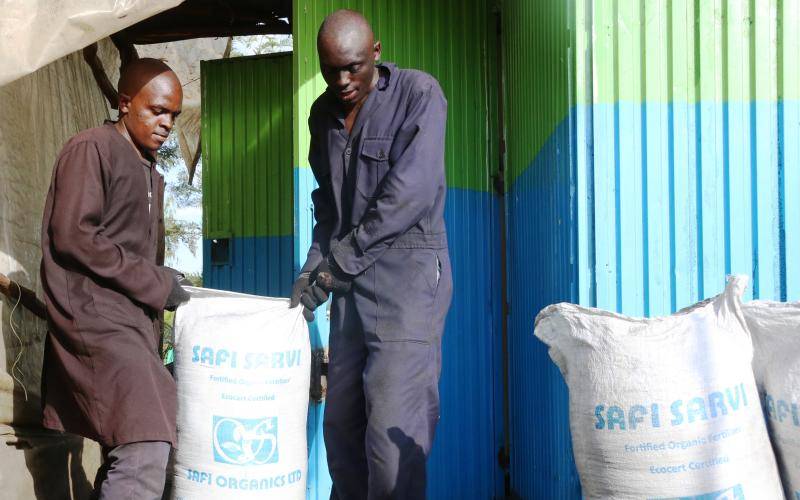×
The Standard e-Paper
Smart Minds Choose Us

Workers at Safi Organic Fertilisers in Mwea get to work, loading the carbon negative bio-chaff onto a machine that mixes and breaks it down into smaller components that is later packed, weighed and sealed in 50-kilogram bags ready for the market.[Allan Mungai,Standard]
Samuel Rigu remembers vividly back when he used to assist his grandmother during the school holiday breaks with garden chores in Mwea, Kirinyaga County.







